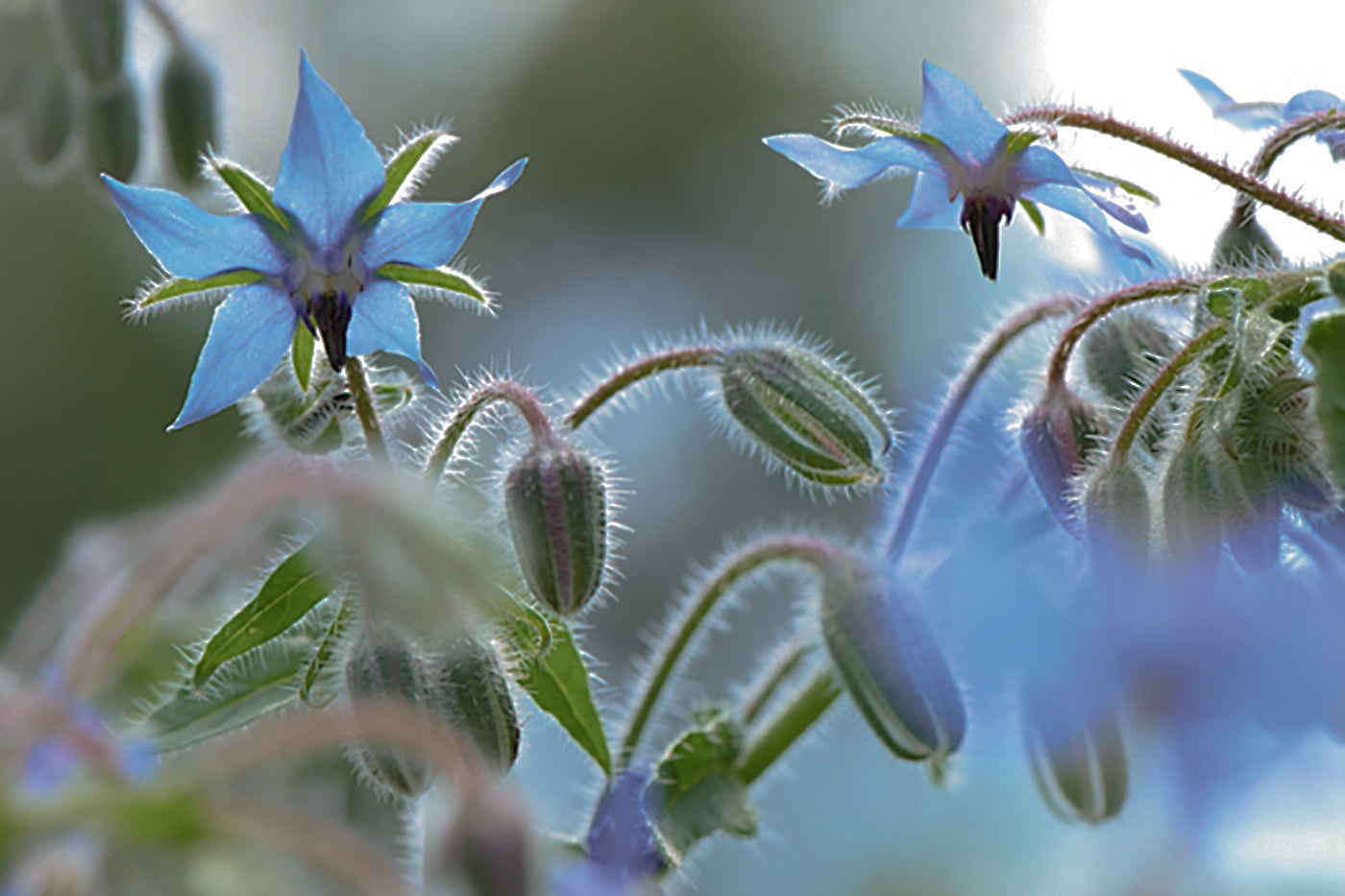BORAGE OIL // Your skin's best friend

I have a special relationship with each and every one of our ingredients. Not only have they been chosen for very specific reasons, I have personally experienced each on its own prior to doing so. More than just a formula, all our ingredients give meaning to the finished products.
One of the first ingredients that I came across in my hunt for the most nourishing skin care was borage oil. It was truly game changing in my own skincare program and opened my eyes to the fact that a natural approach was most definitely possible.
As the story goes, when I was diagnosed with psoriasis in my mid 20s, I started scrambling for whatever ingredients I could find that would be effective. I read about taking Borage internally, as well as applying it externally to treat inflammatory skin conditions like eczema or psoriasis. Borage has a unique fatty acid profile, especially high in GLA (gamma linolenic acid). This fatty acid compound gives borage its unique anti-inflammatory properties and makes it such a powerful skin care ingredient.
What is borage?
Technically an herb, borago officinalis exists in the space in between flower and medicinal herb. It's often grown in vegetable gardens to provide a beautiful contrast to other seedlings as it's beautiful and quite easy to grow. It loves hot sun and thrives in the spring and summer months.
Virtually every aspect of the borage plant is edible. I personally think it's one of the most beautiful and beneficial of all the edible flowers with its little star shaped bright blue buds. The flavor has a slightly fresh and mineral quality- reminiscent of cucumber. The borage leaves can be used to brew tea (a beautiful bright blue tea), eaten in salads, or sprinkled on a variety of dishes. It's a uniquely multi-purpose plant, and that's one of the reasons that we like it so much. I personally find it very soothing.
What is borage oil?
Borage seed oil is extracted from the seed of the borage plant. The oil contains up to 24% GLA, which is one of the highest known sources of this fatty acid compound in the plant world. It is higher than evening primrose oil, or blackcurrant seed oil- both of which borage is often compared to. The composition is quite unique, and for that reason, highly effective.
Borage and inflammation?
While there is still plenty of science backed research that needs to be done on the efficacy of borage and inflammation, there is lots of promise behind some of the preliminary studies and personal antidotes. In capsule form it is to be taken much in the same way that you would fish oil- to reduce inflammation, lubricate the joints, and improve skin and hair health. Again, this is not officially backed by science, but the oil has been used for decades and many feel that it does provide relief with little to no negative side effects.
My personal preference for borage is using it as an external application. If inflammatory skin issues are what you are suffering from, I personally think that your money is better spent applying borage oil directly on the issue rather than taking supplements that may or may not be properly absorbed.
Borage tea?
If I were going to up my borage consumption (which I might do after writing this article) I would do so in tea form. Consuming herbs like borage in a tea are such a great way to get whole plant extracts, that provide many of the nourishing qualities of the plant without going through the process of manufacturing or denaturing of what the herb is meant to be.
Borage is a safe herb to consume as a tea. You can buy the dried flowers online or you can easily grow them in your garden. When the flowers are brewed, they create a bright blue color that makes for a unique and beautiful drink. The leaves can also be brewed.
When we were experimenting with recipes for Nucifera, there was never a question as to whether we would include this outstanding ingredient in our formulas. In my personal experience, it has been highly effective and deeply nourishing for my personal ailments.








